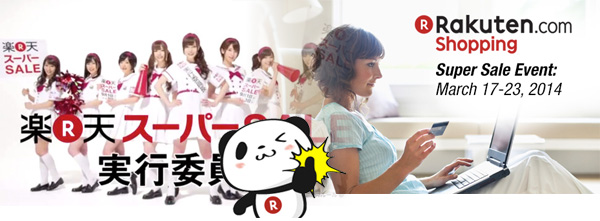Rakuten Japan Ichiba Store - Selling in Japan with Rakuten

Rakuten is Japan's largest online re-seller with 7 out of 10 of all Japanese owning a Rakuten account. At roughly 94 million people that's a number of consumers any company serious about entering the Japanese online market can't ignore.
Rakuten's expansion has been to go international now with localised version of Rakuten in the US, UK, Brazil, Malaysia, Austria, France, Spain, Thailand and no doubt more to go! But how many international companies are opening up in Japan? With 93% domestic penetration and 15 million recorded sales in a 3 month period its clearly tempting to open up shop here.
Because despite this huge untapped market for foreign brands to exploit there is a high barrier to entry and an even bigger knowledge barrier to making it a success. At Rain we've helped brands build and launch stores in Japan on Rakuten and we are fortunate to have professional Rakuten store managers and consultants who can inform clients about what works and what doesn't.
As we often localise brands for the Japan market and internationalise Japanese brands for the global market the follow common considerations are amplified.
Reputation
Your international reputation starts at zero in Japan. Unless your brand is huge there is little chance Japanese consumers will care who you are unless you start telling them, and on their terms. And if your brand really is that huge, we recommend your own store!
Aesthetics and Consumer Behaviour
Design aesthetics and purchasing decisions are different. It might seem ugly, baffling, excessive, slow or wrong but there are reasons for it and if you don't acknowledge them you will fail. To know why you might need to live in Japan for 10+ years but we are happy to explain it. From the perspective of global design principles we agree with you, but apply these to the Japanese consumer at your own risk.
Japanese experts and international experience are essential to explain and communicate what needs to be done to both parties, so good decisions can be made.
The map is not the territory so don’t get eaten
A huge marketplace means huge competition. As of June 2014, Rakuten has 41,000 merchants who are established and understand the terrain. You are in their territory and it's a sophisticated place - local experts again know the territory not the map.
Marketing doesn’t just happen though Rakuten channels, and all established stores are promoting themselves across other digital and offline channels. Relying on a Rakuten ECC means relying on buying Rakuten Advertising to make sales. Just because 7 out of 10 Japanese use Rakuten it does not mean they find the store and products they want via Rakuten. Japanese Rakuten stores build up followers and maintain the relationship between the consumer and store. With so many stores people buy from who they trust.
- Insider tip: Yahoo Shops have more stores, because it is free. Sounds good but this also means more chaff and your store less likely to be found and consequently less sales.
It is the rule
Rakuten Ichiba Stores have their own domestic rules and store management process. Following the rules, the process and making sure you know what they'll require from you is important. This administrative side is again a barrier to international brands opening on Rakuten Ichiba because the amount of checks, regulations and processes.
Have this done by someone who knows how things work here. It’ll save the frustration and angry emails to people who will wonder what your problem is.
The Japanese Language Barrier
Language is an obvious barrier across all facets. Operationally the store management interface is in Japanese and so operating it effectively relies on knowing enough Japanese. Even more importantly though is using the correct Japanese terminology for the market sector you are entering. Translators alone will convert the meaning of your text and product descriptions but they are unlikely to know the current terms; especially in fields such as fashion where terms come in and out of usage. Also knowing the correct terminology is important when structuring the store and how products will be found in Rakuten Search where there are further clever SEO like techniques.
The Pay Off!
The above just scratches the surface and are not all points are even that Rakuten specific. The above also applies when Japanese companies choose to enter a foreign market. What Rain has seen from failed attempts are a hindsight which is blamed on Japan being backward, or conversely Gaikoku being too hard. We don’t believe this, it’s just there is a very different way about how to do things, and if you do them, it works!
That’s not to say entering the Japanese market is easy, it requires commitment - you’re setting up your stall in a foreign land. But that’s how Japan works in almost everything. You put in the work for a big pay off.